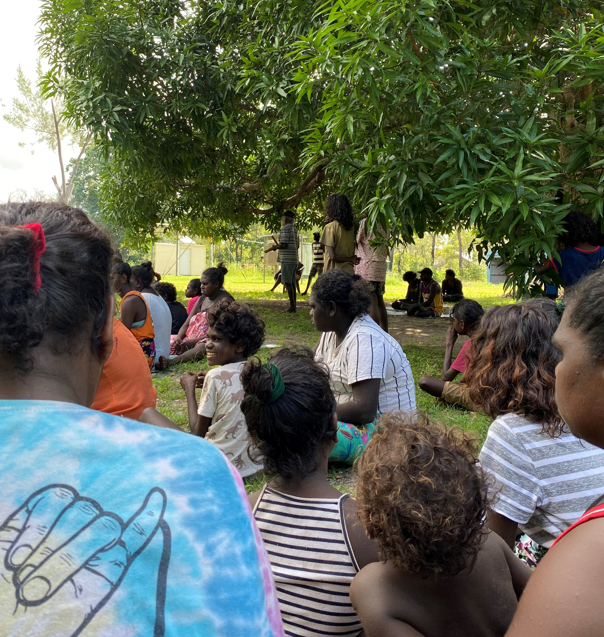
Universities play an important role in theorising, commentating and critiquing what goes on amongst social structures, within policy development and across practice landscapes. In some fields of teaching and research, those theoretical and analytic paradigms sit alongside experimental and empirical data production. In the fields associated with human services, social welfare, social structures and coming to grips with power, privilege, disadvantage, agency and advocacy, there are few writings that make real the human experience quite like being amongst those people and ensuring that it is their voices that are heard.
Universities and other educational institutions beat their own chests over the authorship of mission statements steeped in discourses of social justice and disadvantage. Through their access to multiple forms of cultural and social capital, such institutions think that it is enough to raise awareness of the deficits experienced by remote communities or our first nations. Similarly, the person who has read a few case files of families separated as a result of governmental interventions, and now has access to a database of scholarly readings becomes the teacher of new practitioners in related fields. The blend of Covid, changing world orders, inequitable access to health and social services, and an inability to accept and cater for diversity amongst other factors, is contributing to increased bifurcation of the groups who live across the nation and globe. The poorer are becoming poorer. The disenfranchised become more disenfranchised. More and more people get lost.
For me, talking and thinking about stuff wasn’t enough. Before I’d been in academia, I’d had multiple other lives. I’d grown up in a low socio-economic area and lived the beginning of my adult life as a hairdresser. Over time, I’d reluctantly trained as a teacher, having disliked school and not ever really experienced any social or intellectual success. I found myself in the classroom, I spent most time, in an area similar to that I had been raised, able to plan specifically to meet the needs of my diverse classes. Formal learning became a part of who I was becoming, and I found myself in a university, teaching teachers and then influencing how others thought about their students – not as deficits to be fixed but as whole people who wanted to be more. Retrospectively, I never really fit the University staffing profile, but I will be forever grateful for the skills I learned during my time, mainly in managing difficult or obstinate people. The colleagues, who became my collaborators, were like me – educators of the professions, with authentic track records in service across their fields. They never forgot where they came from and where their practice was grounded.
So, I relocated my life to live out the values and commitment to inequity that I had written and spoken about for so long. I’ve drawn upon all the experiences that I’ve had to take up a role as a registered principal of a school in north eastern Arnhem Land. I have a Yolngu co-principal and the school is staffed by two balanda (non-indigenous) and Yolngu staff. I am one of five non-indigenous people who live in the community, accessible by dirt track during the dry season and light plane in the wet season. The main language spoken is Djamburrpuynu and community follows reasonably traditional ways of living, as their ancestors would have. The students who attend school range from three to twenty three years of age, and it is not unusual to have lots of other much older visitors.
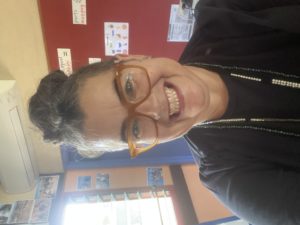
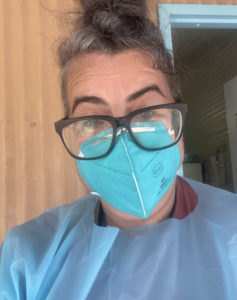
Living this remote means that you are fully immersed in the lives of the individuals, families and collective livelihood of the group. I get to experience the joy of some ceremony and sadness of others. I live in awe of the talents and resourcefulness of the people and am privileged to be trusted with the bicultural and bilingual education of the young people. As the balanda registered principal, I am also the external advocate, coordinator and conduit to the community. I hold the Emergency Medical Kit Licence, am responsible for food security during off season periods and manage all of the Government Departments, Health Services and Social Service contacts. I manage logistics such as Land Permits, Fruit flights and even run emergency recoveries in my 4WD Troopie when families find themselves stranded in the middle of nowhere.
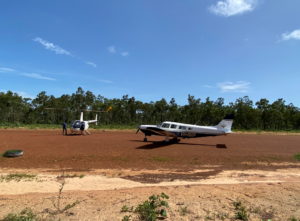
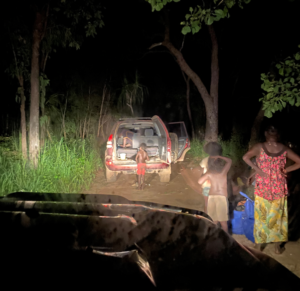
Making the move has been quite extraordinary. Every day is full from the moment I open my eyes, to when I close them. I am no longer thinking hypothetically or theoretically about how people need to be trained or how different circumstances might affect people in this community. It’s my real life, in a real world and every decision I make has an impact on someone else. This is the test of the legitimacy of my education and commitment to serving community for increased efficacy. The learning is profound and it is humbling to be welcomed and accepted into this community
Professor Debra Bateman
Adjunct to Rural and Remote Health, College of Medicine and Public Health, Flinders University
Member of the Social Work Innovative Research Living Space (SWIRLS)
Principal and Community Advocate/Liaison – Mäpuru Yirralka College
self-determined lives of dignity on ancestral estates
To learn more about Mäpuru visit: https://www.aisnt.asn.au/schools/mapuru-christian-school and www.arnhemweavers.com.au

